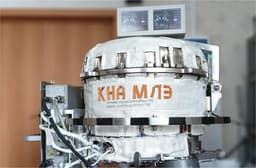Tuberculosis ranks 13th among the leading causes of death in the world, and it is also the second leading fatal infectious agent after COVID-19. However, fighting mycobacteria that cause tuberculosis is not so easy: they infect alveolar macrophages, which act as a kind of "refuge" for bacteria. This makes the development of Russian scientists from Moscow State University all the more important: they have created an antioxidant and antibiotic SkQ1 that allows you to destroy mycobacteria not only in free form, but also inside macrophages. The work is supported by a grant from the Russian Science Foundation and published in the journal Pharmaceuticals.

Usually, foreign objects absorbed by a macrophage are destroyed with the help of lysosomes, but mycobacteria have the ability to evade "digestion" by lysosome enzymes. In this way, they bypass the immune response of the body. Moreover, mycobacteria disrupt the restoration of cell membranes of macrophages, which causes them to lose their protective abilities.
In a joint work of scientists from the A.N. Belozersky Research Institute of Physical and Chemical Biology of Moscow State University and the Central Research Institute of Tuberculosis, it was shown that the mitochondrially targeted antioxidant and antibiotic SkQ1, previously developed at Moscow State University, is effective not only against gram-negative and gram-positive bacteria, but also against Mycobacterium tuberculosis, the causative agent of human tuberculosis.
"The use of compounds that destroy bacterial bioenergetics is a very effective tool for combating bacterial infections", - said an employee of the Department of Bioenergetics of the Research Institute of Physical and Chemical Biology of Moscow State University, Senior Researcher, Ph.D. Pavel Nazarov.
"The ability of human cells to exist in the form of tissues, and the separation of energy processes and substance transport processes inside the eukaryotic cell protects them from the action of SkQ1. However, individual cells that do not form tissues, and mycobacteria weakened by mycobacteria, are not able to protect the mycobacteria from the antibiotic, which determines the success of the antibacterial action of SkQ1 against mycobacteria", - Pavel Nazarov summarized.











